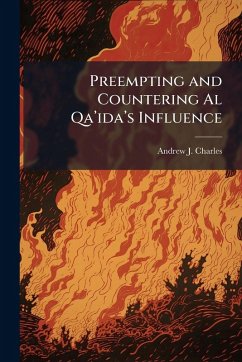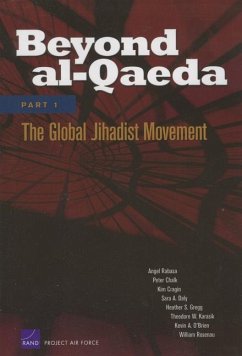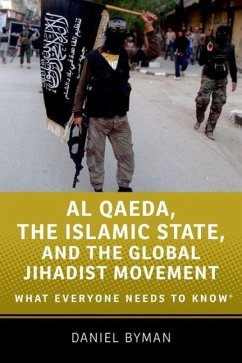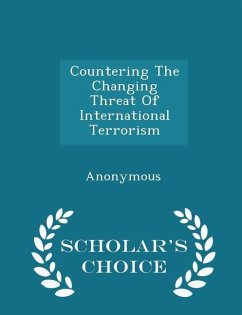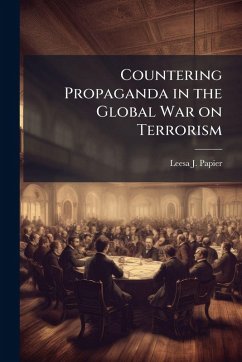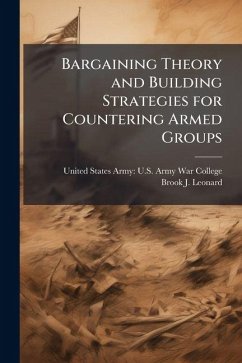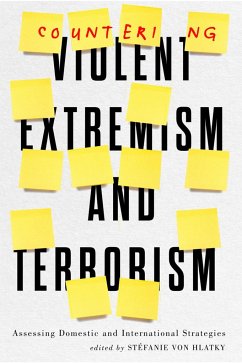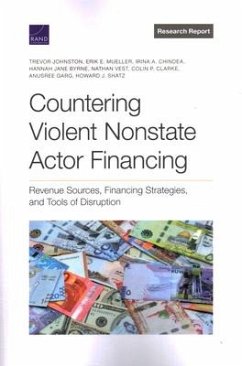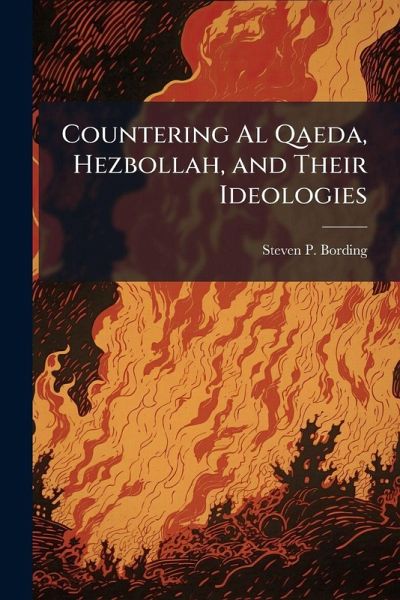
Countering Al Qaeda, Hezbollah, and Their Ideologies
Versandkostenfrei!
Versandfertig in über 4 Wochen
14,99 €
inkl. MwSt.
Weitere Ausgaben:

PAYBACK Punkte
7 °P sammeln!
While all warfare is an expression of politics, none is more pervasively so than irregular conflict. The irregular side, most probably employing a mixture of guerilla tactics and terrorism, will seek favorable political effect from several courses of action. Combating terrorism has become a global effort. Counterterrorism is a struggle of political wills, waged preeminently by the police and other security services, with the military acting in reserve. The most important weapon for the counter-terrorist is information. The war of ideas is crucial to today's terrorist, guerilla, and insurgent. ...
While all warfare is an expression of politics, none is more pervasively so than irregular conflict. The irregular side, most probably employing a mixture of guerilla tactics and terrorism, will seek favorable political effect from several courses of action. Combating terrorism has become a global effort. Counterterrorism is a struggle of political wills, waged preeminently by the police and other security services, with the military acting in reserve. The most important weapon for the counter-terrorist is information. The war of ideas is crucial to today's terrorist, guerilla, and insurgent. Two of major terrorist organizations that pose the greatest potential threat to the United States are Al Qaeda and Hezbollah; both are motivated by two very powerful yet distinct ideologies. Al Qaeda and Hezbollah may not share the same ideology, but ideology is a key component of why these groups undertake violent action. An ideology is a framework of ideas that describes a view of reality and a set of social and political actions that should be undertaken to change and improve the situation of a particular group. To succeed the insurgent or terrorist must win the war of ideas; the counter-terrorism forces cannot allow this to happen. Ideologies are thus difficult to combat using military forces, because ideas are extremely difficult to contain or destroy. Both Al Qaeda and Hezbollah thrive in the absence or weakness of governments and often operate in ungoverned regions, taking advantage of weak national control to smuggle weapons, money, and other resources. Unable to compete in a direct confrontation with regular, host nation forces, these groups use asymmetric tactics such as terrorism to engage their enemies and further their ideologies. This paper furthers the understanding of disparate insurgencies through a comparative analysis of Al Qaeda and Hezbollah. The main goal is to show that the crucial divergence between Hezbollah and Al Qaeda allows for differing opportunit This work has been selected by scholars as being culturally important, and is part of the knowledge base of civilization as we know it. This work was reproduced from the original artifact, and remains as true to the original work as possible. Therefore, you will see the original copyright references, library stamps (as most of these works have been housed in our most important libraries around the world), and other notations in the work. This work is in the public domain in the United States of America, and possibly other nations. Within the United States, you may freely copy and distribute this work, as no entity (individual or corporate) has a copyright on the body of the work. As a reproduction of a historical artifact, this work may contain missing or blurred pages, poor pictures, errant marks, etc. Scholars believe, and we concur, that this work is important enough to be preserved, reproduced, and made generally available to the public. We appreciate your support of the preservation process, and thank you for being an important part of keeping this knowledge alive and relevant.




